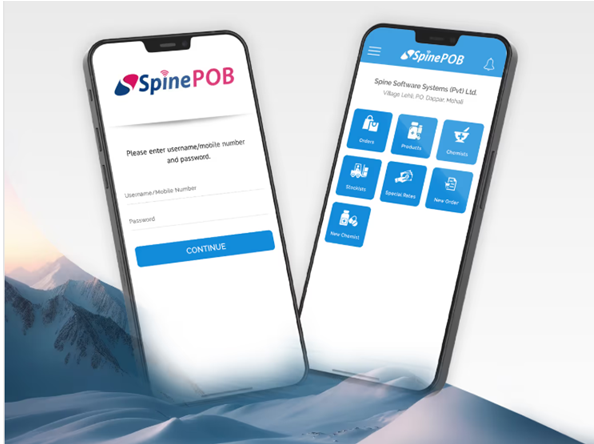
In an era where time is of the essence and precision is paramount, Artificial Intelligence (AI) has emerged as a groundbreaking force in the healthcare industry. From early disease detection to individualized treatment plans, AI is transforming the way diseases are diagnosed, managed, and treated. As one of the most dynamic technological advancements in modern medicine, AI is ushering in a new age of healthcare that is not only efficient but also deeply personalized.
This paradigm shift is impacting every stakeholder in the healthcare ecosystem — from patients and clinicians to pharmaceutical manufacturers and tech-driven solutions such as an order booking app — with promising improvements in speed, accuracy, and accessibility.
The Changing Landscape of Disease Diagnosis
Traditionally, disease diagnosis has depended heavily on human expertise, symptom analysis, and invasive testing. However, even the most experienced healthcare professionals can encounter challenges such as misdiagnosis, delayed detection, or overlooked symptoms. AI, with its ability to analyze vast datasets within seconds, is mitigating these risks by providing physicians with real-time, data-driven support.
AI-powered tools like computer vision algorithms, deep learning models, and neural networks can now analyze medical imaging (e.g., X-rays, MRIs, CT scans) with remarkable accuracy. For instance, Google’s DeepMind demonstrated how AI could outperform radiologists in breast cancer detection. Similarly, AI-based dermatology apps can identify skin lesions and detect melanoma faster than traditional assessments.
AI doesn’t replace doctors; instead, it enhances their decision-making abilities. This collaborative synergy allows for quicker diagnoses, fewer errors, and ultimately, better patient outcomes.
Personalized Medicine: The Future of Treatment
Beyond diagnosis, AI is playing a vital role in tailoring treatment plans to individual patients. By leveraging genomic data, lifestyle patterns, and medical history, AI algorithms can predict how a patient might respond to specific treatments — a concept known as precision medicine.
For example, IBM Watson Health has been at the forefront of using AI to recommend cancer treatment protocols based on patient data and clinical trials. This level of personalization can reduce the trial-and-error process of prescribing medications, shorten recovery times, and lower healthcare costs.
The relevance of this innovation is especially high for chronic conditions such as diabetes, cardiovascular diseases, and cancer, where timely and targeted interventions can significantly improve life expectancy and quality of life.
Drug Discovery and AI Acceleration
The pharmaceutical industry is leveraging AI to shorten drug discovery timelines, which traditionally span over a decade and involve substantial financial investments. Machine learning models can now screen millions of chemical compounds, predict molecular behavior, and identify potential drug candidates within months.
AI-driven platforms are also accelerating vaccine development — a fact proven during the COVID-19 pandemic when several pharma companies employed AI to expedite research. Global players, including top pharma companies in Chennai, have started adopting AI-powered research tools to gain a competitive edge in therapeutic innovation.
In parallel, antibiotic medicine manufacturers in Germany are applying AI in tackling antimicrobial resistance. By analyzing patterns in bacterial evolution and simulating drug-pathogen interactions, AI helps in discovering next-generation antibiotics — a critical need in global healthcare.
Enhancing Healthcare Accessibility with AI Applications
AI is also instrumental in democratizing access to quality healthcare. In resource-limited settings where specialists are scarce, AI-based mobile diagnostics and virtual consultations offer viable alternatives. Chatbots, for instance, provide 24/7 preliminary health assessments, symptom checks, and guidance on when to seek medical help.
Furthermore, cloud-integrated systems that include features like an order booking app help streamline pharmaceutical supply chains. These apps allow healthcare providers to order and manage inventory with precision, ensuring uninterrupted availability of life-saving drugs.
In remote regions, AI-powered tools coupled with telemedicine platforms bridge the gap between patients and providers, making quality care more inclusive and scalable.
Real-Time Monitoring and Predictive Analytics
Wearable health devices, IoT sensors, and smart implants are generating real-time health data like never before. AI interprets this data to offer continuous monitoring of patients with chronic diseases, enabling preventive care and emergency alerts.
Hospitals and healthcare providers now rely on AI dashboards that use predictive analytics to foresee potential complications, such as cardiac arrests or hospital-acquired infections. This foresight allows for early interventions and more efficient allocation of medical resources.
Moreover, predictive analytics enhances clinical workflows by forecasting patient inflow, optimizing staff scheduling, and even managing critical care units during peak demand.
Ethical Considerations and Challenges
While the benefits of AI in healthcare are profound, there are still challenges to address. Data privacy, algorithm bias, and regulatory compliance are critical concerns. For instance, an AI trained on a non-representative dataset might underperform when diagnosing patients from diverse populations.
Moreover, AI systems must operate transparently to maintain trust among healthcare professionals and patients. Explainability of AI decisions, ethical usage of patient data, and stringent validation through clinical trials are essential steps before full-scale implementation.
The Role of Pharma and Digital Transformation
Pharmaceutical companies are at the heart of this AI revolution. By embracing digital transformation, they’re moving from reactive models to proactive health solutions. Companies like Venus Remedies Ltd, a reputed antibiotic medicine manufacturer in Germany, are leveraging AI to enhance their R&D capabilities and streamline manufacturing processes.
Similarly, top pharma companies in Chennai are integrating AI with business intelligence tools to optimize marketing strategies, predict sales trends, and personalize customer outreach. The rise of digital health ecosystems — featuring platforms with integrated order booking apps — showcases how pharma and tech can collaborate for holistic growth.
Conclusion: A Transformational Force
AI is not just a tool; it’s a transformational force redefining the very fabric of modern medicine. From fast-tracking drug discovery and refining disease diagnostics to offering personalized treatment and predictive healthcare, AI is at the core of the next-gen healthcare ecosystem.
For stakeholders across the board — from clinicians and researchers to pharma manufacturers and digital health innovators — the integration of AI offers unmatched opportunities to elevate patient care and operational efficiency.
As technology continues to evolve, the healthcare industry must balance innovation with responsibility, ensuring that the AI revolution remains ethical, inclusive, and beneficial for all.




